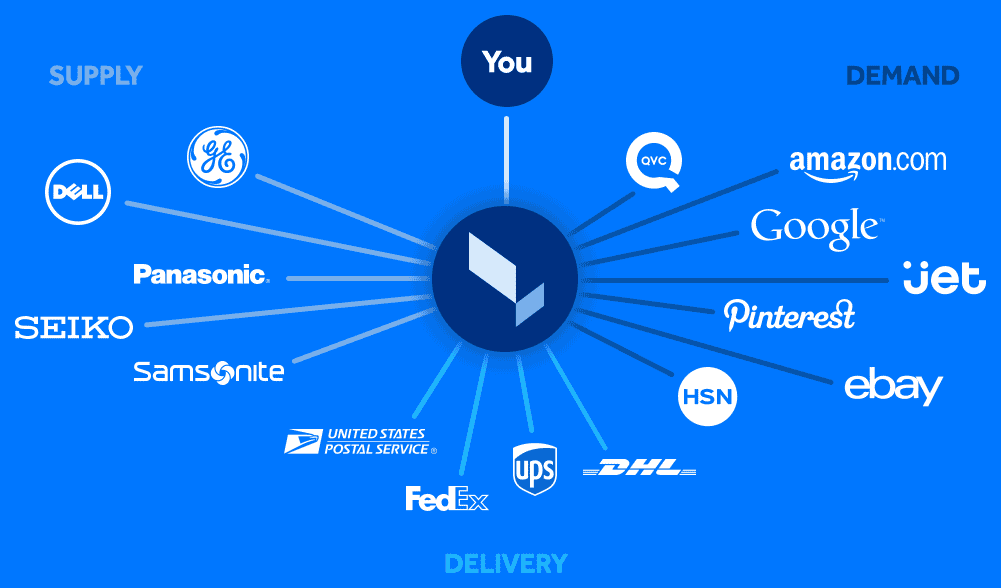Using Resource Strategy to Gain a Competitive Edge

E-Commerce has quickly emerged as arguably the most fiercely competitive marketplace in terms of turning over consumer goods. One of the difficult adjustments for retailer to make in this time of transition is warehousing, logistics, and distribution of all these products. Staying competitive in the E-Commerce field is not easy. In fact, consideration of fundamental factors makes you quickly realize just how jaunting the task can be.
While building a warehouse in the Central United States would not present a tremendous cost to a large chain retailer, the cost of delivering the product must be considered as well. If a certain product has to make a 5 day, $25 journey across the continental United States, it is more than likely that the average consumer would either acquire it from another e-commerce retailer or simply drive to the store to pick it up. This means that retailers need to invest significant amounts of money to either cover shipping costs or have the product warehoused closer to the consumer.
However, a more recent trend has been to use a third party which almost entirely eliminates the need for a retailer to warehouse their own inventory. CommerceHub is a technology company that uses a platform which connects retailers with suppliers that can ship directly to customers. The platform is utilized by some of the largest merchants, ranging from Walmart to Dell. The effective result is a distribution network which reduces delivery costs, as they utilize local suppliers. Furthermore, these merchants are able to carry a much larger assortment of products due to the fact that they have access to an immense amount of suppliers without the need to warehouse the products.
A recent WSJ article highlights the company’s platform and sales figures, most notably highlighting a 23% increase in revenue in 2017. Nearly a quarter increase in revenue in a single year demonstrates just how much retailers value this type of resource. It eliminates the need for these companies to pick and chose what they should stock in their warehouse based on forecasts, rather relying on suppliers to handle those figures. This provides a tremendous cost saving opportunity, while overall increasing the efficiency of delivering a product to the customer.
It was recently announced that CommerceHub would be acquired by two private equity firms in a transaction valued at $1.1 billion. This represents nearly a 25% premium per share over their market value. The terms of the deal can provide some serious insight into what investors are speculating regarding this type of business.
Do you think that this type of platform is a viable solution to handle inventory management for e-commerce retailers?
https://www.wsj.com/articles/private-equity-groups-will-acquire-online-fulfillment-provider-commercehub-1520343715?mod=searchresults&page=1&pos=1
Interesting point, Samuel. The customer seems to want convenience of purchase more than ever. The consumer wants the product now (or within 48 hours). This is a standard set by retail industry leader, Amazon. It guarantees the product will be on the customer’s door step in 48 hours. As you mentioned, E-commerce has become a very competitive market because speed, convenience, and reliability are at the forefront of customer orders qualifiers.
CommerceHub is a platform that seems to level the ‘playing field’ when connecting suppliers to customers. Partnering with a firm like CommerceHub should eliminate parts of the scheduling of inventory and shipping dates because they connect retailers with local suppliers. This will create a more efficient delivery service for many firms and should reduce errors when it comes to forecasting the quantity of inventory at hand. CommerceHub will mitigate doubt by generating a faster, more efficient delivery service for companies around the country.
I think this is a viable option for all e-commerce companies. As you mentioned, if a company is not confident in their ability to properly forecast their warehousing needs, then paying for professionals to handle it is the logical solution. From a cost-saving perspective, this seems like the way to go. Personally, I love when my packages come within a few days so I would support this if it proves to be shorter than the company directly shipping their products out. My only concern with a shift such as this is that it leads to too much moving parts. If anything happens to Commercehub it also happens to the host company and their customers. Yet, it seems to me that such an industry will not have many problems and that e-commerce companies who are not able to offer efficient shipping on their own should use this service.